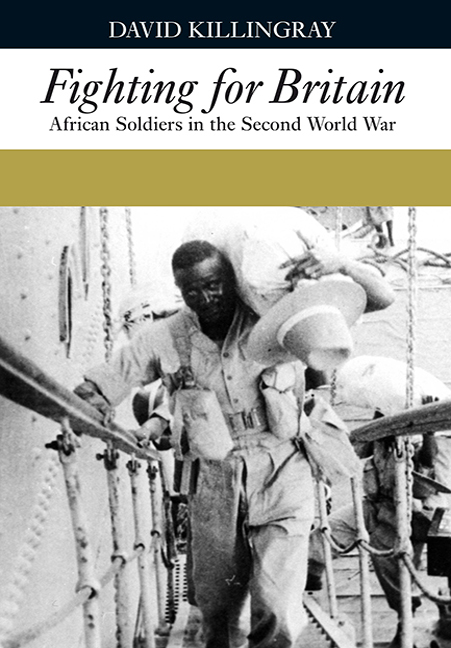Book contents
8 - The Social Impact of War Service
Published online by Cambridge University Press: 13 April 2017
Summary
‘Truly Chief we have enlarged our ideas.’
‘When we go back to our villages and towns we don't want to go back to the past.
We want to go back to the future.’
The war years saw the largest mobilisation and movement of men within and out of Africa in modern history. Altogether more than one million men left their homes, which were mainly in rural areas, to serve in the military forces of the colonial powers. In British Africa and South Africa the total number of men enlisted was in the region of 600,000. Although wartime recruitment was eventually extended beyond the traditional recruiting grounds the majority of soldiers continued to be drawn from those areas. The social and economic impact of this large and sustained process of enlistment and lengthy service, often overseas, was for many men profound. Men recruited from remote rural areas had no visual image of the new artefacts and scenes they would encounter. For the most part they came from a world without books or illustrations, having had few reference points to prepare them for what they were going to see. For example one recruit, having recently encountered the railway, believed that ocean-going vessels ran on tracks under the sea. And yet adaptation was relatively speedy and new sights, sounds and experiences were readily absorbed. Adapting to change, even profound change, has been an ingredient of human experience throughout history. There were many similarities between wartime military service and the processes of migrant labour to the mines of central and South Africa. Both military service and migrant labour involved men leaving rural areas for a lengthy absence from wives and children, with all the strains that this imposed on family relationships and rural production. Migrant labourers in southern Africa often lived in predominately male compounds or barracks, a regulated environment involving various measures of social control; there were new languages and skills to be acquired; and migrants were exposed to modern technology and to urban culture. A good deal has been written about the social history of migrant labour, less on the social impact of soldiers in wartime, the subject addressed by this chapter.
- Type
- Chapter
- Information
- Fighting for BritainAfrican Soldiers in the Second World War, pp. 236 - 255Publisher: Boydell & BrewerPrint publication year: 2010

